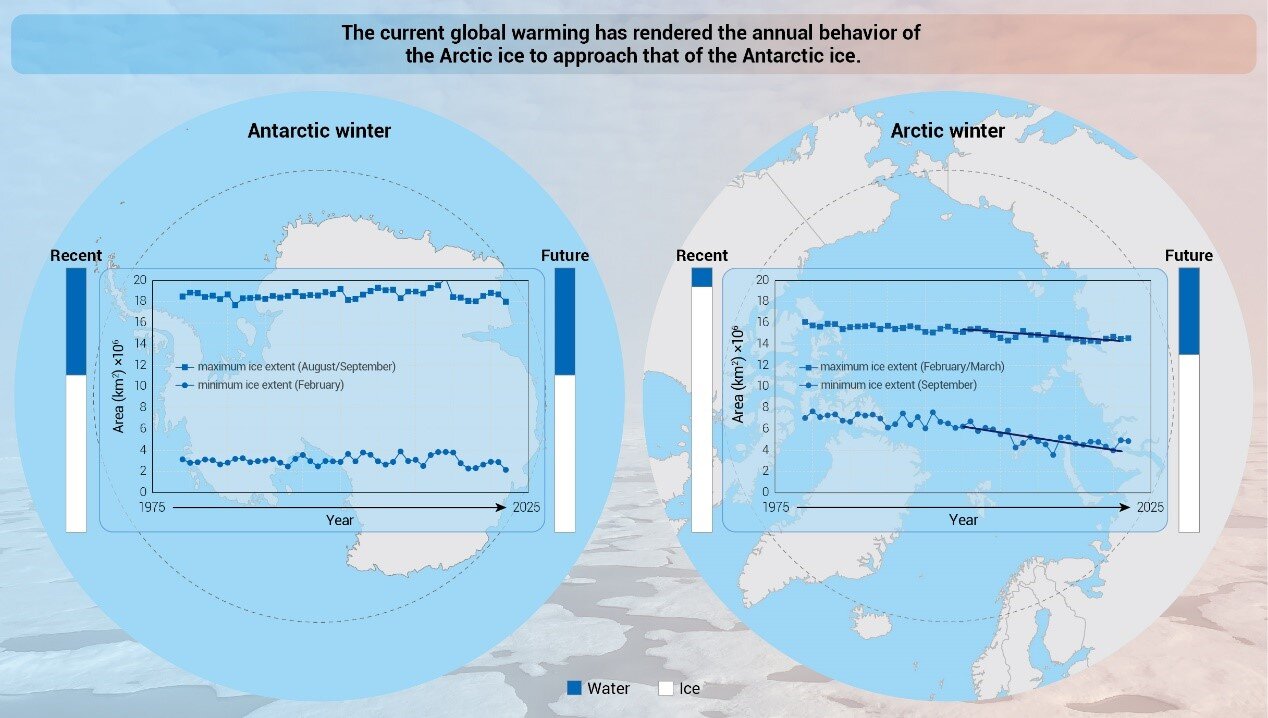

A recent study published in the journal Ocean-Land-Atmosphere Research has sought to answer why Arctic sea ice is melting at a faster and more obvious rate than Antarctic sea ice. The research has found that the differences in how both regions respond to climate change can be explained through their geographical, climatic, and meteorological differences.
Arctic sea ice is located in the polar area, surrounded by land, while Antarctic sea ice is situated outside the Antarctic circle, far from the polar area. The study has highlighted that the Antarctic sea ice is still being impacted by the formation of icebergs through calving and ice shelves melting, but at a slower rate than the Arctic sea ice.
The Arctic and Antarctic regions’ seasonal melting of sea ice and ice shelves can vary due to atmospheric and oceanic conditions. However, the researchers have suggested that each region’s melting is occurring for different reasons. Thus, the two regions should not be looked at through the same lens, and each problem has the potential for its answer.
The study authors suggest another inquiry to the popular one of why the Arctic sea ice is more responsive to climate change than the Antarctic sea ice. They propose investigating how global warming has triggered the shift in Arctic sea ice patterns to mimic the seasonal behavior of the Antarctic sea ice.
Continuous monitoring is essential to gain a comprehensive understanding of how sea ice behaves in response to climate change in both the Arctic and Antarctic regions. Addressing these region-specific questions may lead to further research and insights on the impacts of climate change on sea ice. Therefore, it is crucial to investigate them separately to better answer the question of how global warming has triggered the shift in Arctic sea ice patterns.
A groundbreaking discovery by scientists at the University of Manchester is poised to reshape the…
In an era marked by rapid ecological change, the quest for understanding environmental pollutants like…
The meteoric rise of artificial intelligence (AI) technologies is not without significant implications on our…
The landscape of quantum computing is on the verge of transformative progress, fueled by groundbreaking…
Schizophrenia is not merely a mental health issue; it is a multifaceted condition that wreaks…
Recent scientific research has illuminated the intricate web that ties our dietary choices to the…
This website uses cookies.